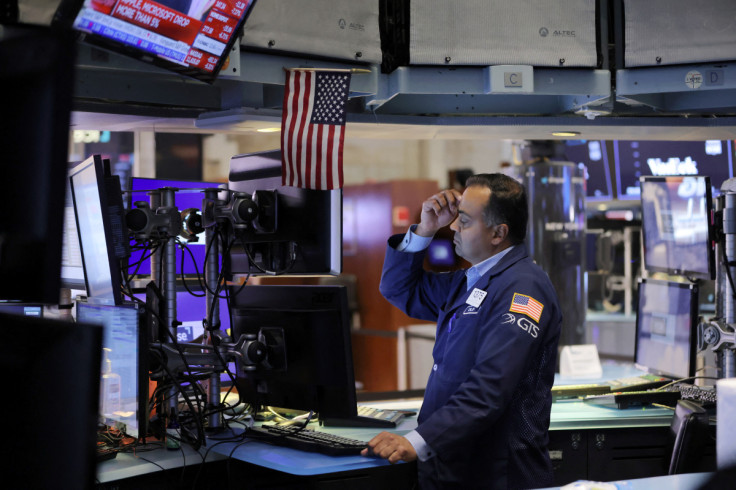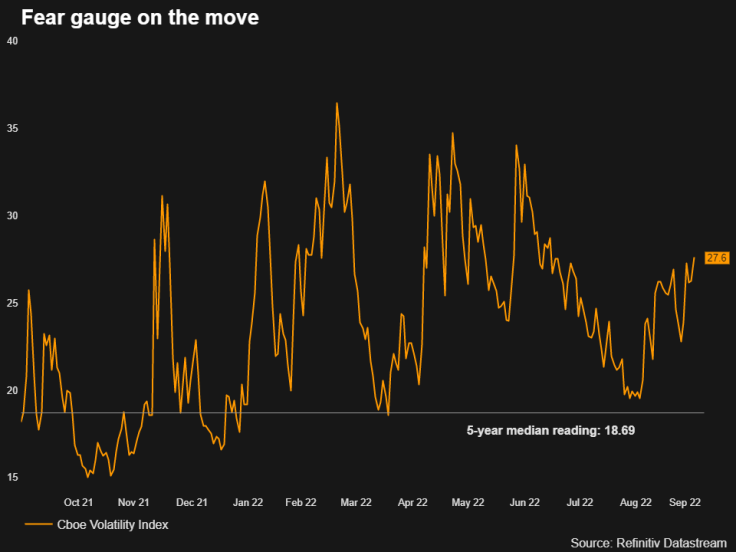Wall Street's 'Fear Gauge' Creeps Higher As Stock Sell-off Deepens

Investors' anxiety about stock market turbulence is fast approaching levels associated with heightened fear as the S&P 500 looks set to wrap up its worst weekly showing in three months.
The Cboe Volatility Index - which is known as "Wall Street's fear gauge" and which measures the expectation of stock market volatility as expressed by options prices - was up 1.38 points to 27.65, after hitting a two-month high of 28.45.
VIX readings above 20 are generally associated with an elevated sense of investor anxiety about the near-term outlook for stocks, while readings north of 30 or 35 point to acute fear and have been accompanied by steep losses in stocks.
"The VIX is high, but it is not inappropriately so," said Steve Sosnick, chief strategist at Interactive Brokers.
"The market is showing a much better recognition of the current and potential risks coming down the pipe," Sosnick said.
GRAPHIC: Fear gauge on the move

There has been no shortage of reasons for investor concern.
U.S. stocks' volatile run this year shows no signs of abating as stubbornly high inflation data makes it likely the Federal Reserve will continue to raise U.S. borrowing costs faster and further than previously expected, boosting the chances that the U.S. economy will run into trouble.
The latest blow to investor sentiment came late on Thursday after FedEx Corp withdrew its financial forecast, blaming an acceleration in a global demand slowdown.
That helped send Wall Street's main indexes to near two-month lows on Friday, with the S&P 500 on pace for a weekly drop of about 5%, its worst fall since mid-June.
The gloomy news comes ahead of next week's Fed meeting when policymakers are widely expected to deliver a third straight 75-basis-point rate hike, potentially further reducing investors' appetite for risky assets such as stocks. That's sent bond yields higher, adding to pressure on equities.
In addition, September, which is a seasonally weak period for markets, will also see the Fed ramp up the unwinding of its balance sheet to $95 billion per month, a move some investors fear may add to volatility in markets and weigh on the economy.
Meanwhile, Friday marks the monthly options expiration day, which tends to inject greater-than-usual volatility into markets, as options-hedging activity amplifies market moves.
"People are realizing, maybe, we do need some protection here," Sosnick said.
© Copyright Thomson Reuters 2024. All rights reserved.











